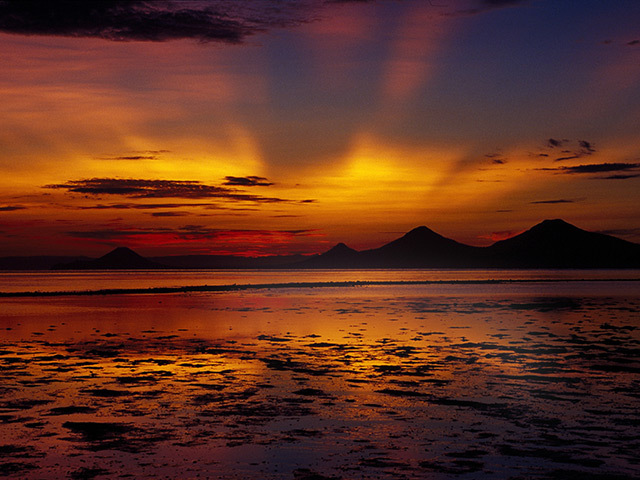
Exxon Mobil Corp. agreed to acquire natural gas explorer InterOil Corp. for as much as $3.6 billion to add discoveries in Papua New Guinea that will feed the buyer’s existing export plant.
Exxon will use its own stock and cash to pay between $45 and $71.87 per share of InterOil, depending on how much gas InterOil’s Elk-Antelope field holds, Irving, Texas-based Exxon said in a statement on Thursday. With the range of potential payouts valuing the agreement at as much $3.6 billion, it may represent Exxon’s biggest acquisition since the $35 billion purchase of U.S. shale explorer XTO Energy in 2010.
The world’s largest energy producer by market value also agreed to pay a $60 million breakup fee on behalf of InterOil, which backed out of an earlier deal to sell itself to Oil Search Ltd. and Total SA for $2.2 billion.
Export Plans
Exxon said it plans to chill, liquefy and export the gas from the Elk-Antelope field in its PNG LNG complex on the coast of the South Pacific nation. Exxon’s statement made no mention of InterOil’s original plan to build a separate LNG facility known as Papua LNG from scratch. Exxon’s PNG LNG plant cost $19 billion to build and began exporting the fuel in 2014.
“Exxon Mobil will work with co-venturers and the government to evaluate processing of gas from the Elk-Antelope field by expanding the PNG LNG project,” the company said in the statement. “This would take advantage of synergies offered by expansion of an existing project to realize time and cost reductions that would benefit the PNG Treasury, the government’s holding in Oil Search, other shareholders and landowners.”
InterOil shares fell 0.3 percent to $48.80 at 1:23 p.m. in New York, paring the year-to-date advance to 55 percent. Exxon fell 0.3 percent to $96.38.
LNG Oversupply
Exxon’s acquisition comes amid a swelling LNG glut as billions of dollars in new export terminals from the Indian Ocean to the U.S. Gulf of Mexico add supply while Asian demand stagnates. Global liquefaction capacity will jump 45 percent by the end of 2020 to 465 million tons a year, according to Energy Aspects Ltd., which used the end of 2015 as its base date. The U.S. Energy Information Administration says the country is on track to be a net exporter for gas by the end of next year.
The economics are getting tougher for spending billions on LNG complexes that chill gas to shrink it to 1/600th of its volume so it can be shipped overseas by tanker. LNG gas prices collapsed during the past two years as supplies expanded and crude prices used as benchmarks for LNG crumbled.
The transaction commits Exxon to pay a base price of $45 of its own stock for each InterOil share.
Additionally, for every trillion cubic feet of gas reserves above 6.2 tcf that Elk-Antelope holds, Exxon will pay a cash bonus to InterOil holders. The cash portion, known as a contingency resource payment, will be capped at 10 tcf and $26.87 a share.
For InterOil founder and former chief executive officer Phil Mulacek, the transaction will be worth at least $119 million, based on the 5.35 percent stake he owned as of his latest securities filing on May 17.
Close all those tabs. Open this email.
Get Bloomberg’s daily newsletter.
Sign Up
Mulacek, a Texas Tech University-trained petroleum engineer, gained a foothold in the South Pacific nation in the 1990s by disassembling an Alaskan refinery and rebuilding it in the capital Port Moresby. When the worldwide financial crisis prompted Merrill Lynch to shed its 35 percent stake in InterOil in early 2009, Mulacek began searching for replacement investors to bankroll his dream of building an LNG plant.
Mulacek stepped down in 2013, around the time Exxon began talking to the company about a potential buyout. Those talks collapsed within months for undisclosed reasons.